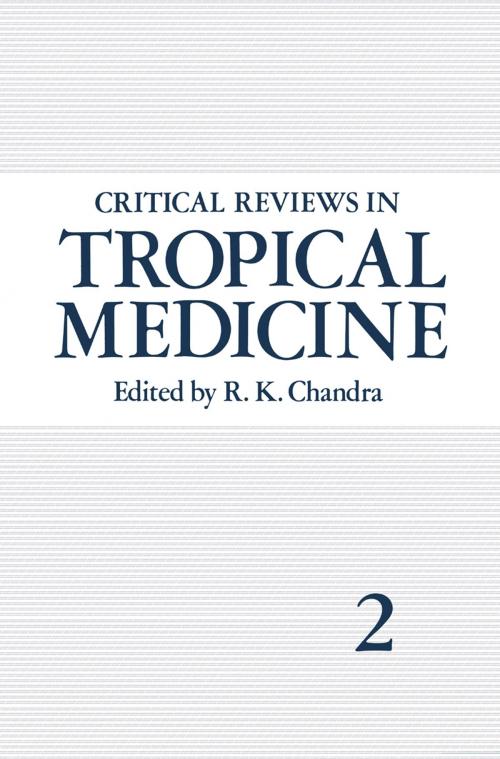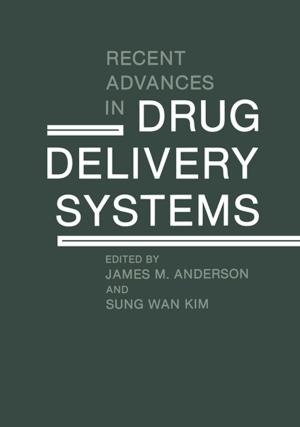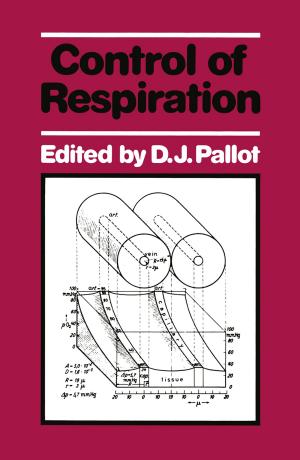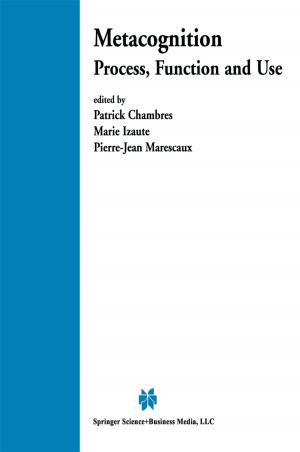Critical Reviews in Tropical Medicine
Volume 2
Nonfiction, Health & Well Being, Medical, Ailments & Diseases, Infectious Diseases, Tropical Medicine| Author: | ISBN: | 9781461327233 | |
| Publisher: | Springer US | Publication: | December 6, 2012 |
| Imprint: | Springer | Language: | English |
| Author: | |
| ISBN: | 9781461327233 |
| Publisher: | Springer US |
| Publication: | December 6, 2012 |
| Imprint: | Springer |
| Language: | English |
At the present time there are renewed global efforts to control the major tropical infections and to stem the tide of malnutrition, the two serious, often intertwined, problems that contribute to much of the morbidity and mortality in under privileged populations. Many international organizations have joined hands with national governments and with the private sector to search for new approaches to problems that beset much of the developing world, including countries in the tropical region. This volume continues the tradition of the previous publication in the Series. A variety of fare is offered to readers: explanations of the activities and achievements of the UNDP/World Bank/WHO Special Programme for Re search and Training in Tropical Diseases; and studies of infant mortality, schistosomiasis, trypanosomiasis, helminths, lactase deficiency, oral rehydration therapy, functional consequences of iron deficiency, and fertility control. Au thoritative state-of-the-art reviews provide a critical analysis of recent data. I hope the Series will continue to prove useful to all those working in the tropics and to those in the industrialized countries whose awareness of physical health problems of the Third World is relatively limited. R. K. Chandra St. John's, Newfoundland VlI Contents Chapter 1. The Special Programme for Research and Training in Tropical Diseases . . . . . . . . . . . . . . . . . . . DAVID S. ROWE 1. Origins, Objectives, and Diseases. . . . . . . . . . . . . . . . . . . . . . . . . . . 1 2. The Modus Operandi of the Programme. . . . . . . . . . . . . . . . . . . . . . 3 2. 1. Scientific Working Groups. . . . . . . . . . . . . . . . . . . . . . . . . . . . 3 2. 2. Research Strengthening Group. . . . . . . . . . . . . . . . . . . . . . . . . 7 2. 3. The Scientific and Technical Advisory Committee. . . . . . . . . 7 2. 4. Joint Coordinating Board. . . . . . . . . . . . . . . . . . . . . . . . . . . . .
At the present time there are renewed global efforts to control the major tropical infections and to stem the tide of malnutrition, the two serious, often intertwined, problems that contribute to much of the morbidity and mortality in under privileged populations. Many international organizations have joined hands with national governments and with the private sector to search for new approaches to problems that beset much of the developing world, including countries in the tropical region. This volume continues the tradition of the previous publication in the Series. A variety of fare is offered to readers: explanations of the activities and achievements of the UNDP/World Bank/WHO Special Programme for Re search and Training in Tropical Diseases; and studies of infant mortality, schistosomiasis, trypanosomiasis, helminths, lactase deficiency, oral rehydration therapy, functional consequences of iron deficiency, and fertility control. Au thoritative state-of-the-art reviews provide a critical analysis of recent data. I hope the Series will continue to prove useful to all those working in the tropics and to those in the industrialized countries whose awareness of physical health problems of the Third World is relatively limited. R. K. Chandra St. John's, Newfoundland VlI Contents Chapter 1. The Special Programme for Research and Training in Tropical Diseases . . . . . . . . . . . . . . . . . . . DAVID S. ROWE 1. Origins, Objectives, and Diseases. . . . . . . . . . . . . . . . . . . . . . . . . . . 1 2. The Modus Operandi of the Programme. . . . . . . . . . . . . . . . . . . . . . 3 2. 1. Scientific Working Groups. . . . . . . . . . . . . . . . . . . . . . . . . . . . 3 2. 2. Research Strengthening Group. . . . . . . . . . . . . . . . . . . . . . . . . 7 2. 3. The Scientific and Technical Advisory Committee. . . . . . . . . 7 2. 4. Joint Coordinating Board. . . . . . . . . . . . . . . . . . . . . . . . . . . . .















